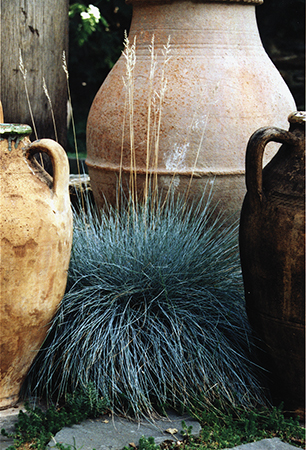Growers Explore Sustainability Certification
Would a well-established European grower certification program work in the United States? On Saturday, Doug Cole of D.S. Cole Growers in Loudon, N.H. hosted Theo de Groot, director of MPS (Milieu Project Sierteelt), and fellow growers to find out.
The small group meeting included Henry Huntington of Pleasant View Gardens, also in Loudon, Noah Schwartz of Matterhorn Nursery in New York, and incoming University of New Hampshire Greenhouse Extension Specialist Brian Krug.
“The goal of the meeting was to learn what alternatives growers have in the recent sustainability and certification trend,” Cole says. “Some buyers are already asking for growers to be certified with Veriflora or other companies. The meeting was designed to learn what growers have for options, before buyers dictate what we need to do. As growers, do we sit back and complain later that we weren’t involved or start investigating now? Even though I’m not a box store grower, I’ve seen how these kinds of things can mushroom.”
Based in Holland, MPS is an international certification organization which owns and develops certificates for horticultural producers. Key crops include floriculture, bulb, nursery stock and vegetables. Environmental issues set up the framework for MPS. Social issues can be addressed as a separate MPS certification. The goal is to assure the public and buyers that certified growers are using best practices, which includes sustainability issues.
The nonprofit organization was established by growers more than 10 years ago as an answer to the public’s and media’s inquiries surrounding the horticulture sector’s environmental practices. Today, more than half of the European growers participate in the program, Cole says.
“Growers created MPS to take charge of their environmental responsibilities before the government dictated more regulation,” he explains. “This action showed the public that growers are good stewards of the environment. Another benefit of the process is to create a competitive sales advantage to those growers that are certified.”
Growers who undergo the environmental audit are rated as A, B, C or D based on a point system. The D level indicates growers who are merely participating in the program. Marketing opportunities are available as growers attain higher levels of certification. A familiar consumer icon is the “Fair Flowers, Fair Plants” label.
The European certification evaluation grid is heavily weighted toward crop protection, which represents 50 points. Remaining criteria include energy for 10 points, fertilizer management for 20 points, waste disposal for 10 points and water management for 10 points. The point system can be tailored to each country’s issues of interest. For instance, in Latin America, social issues are a greater concern. Even within the United States, there may be regional differences with Northern growers consuming more energy for heating.
Cole first met de Groot at the OFA Short Course. “I’ve known about MPS for many years, when European growers explained it to me,” he says. “Two years ago, I didn’t think U.S. growers would have any interest. Now with the new trend toward sustainability, all of a sudden growers are clamoring to get on board with something. All of a sudden there’s interest at the grower level.”
Krug and the group will be reporting its findings to OFA, which will print an article on this topic in an upcoming OFA Bulletin. The group hopes to have the same type of fact-finding meeting with Veriflora and other organizations certifying growers for sustainability.
Cole also is going to begin by having his own operation, D.S. Cole Growers, participate in an MPS audit to see where it stacks up in global certification programs. “I will jump in with MPS and see where we stand,” he says. “Are we terrible or wonderful? We need to do this one-year pilot with a bunch of growers to see where we stand. There really are no U.S. standards for MPS and we need some quantitative analysis. If the standards aren’t attainable, nobody wins.”
For more information on MPS, visit www.my-mps.com.









